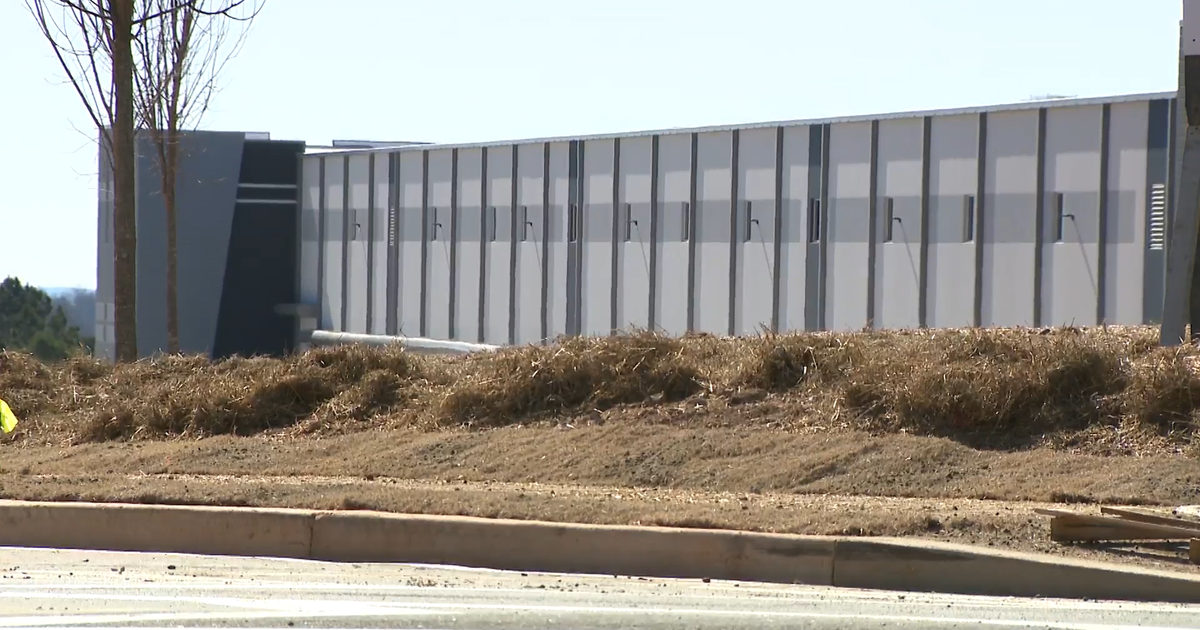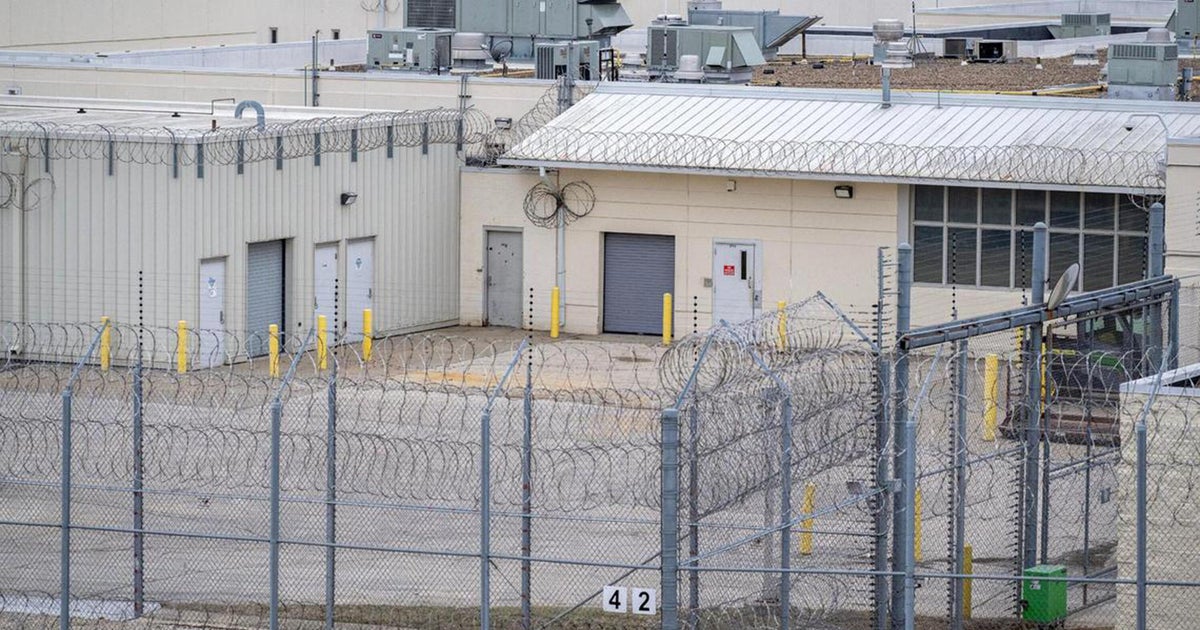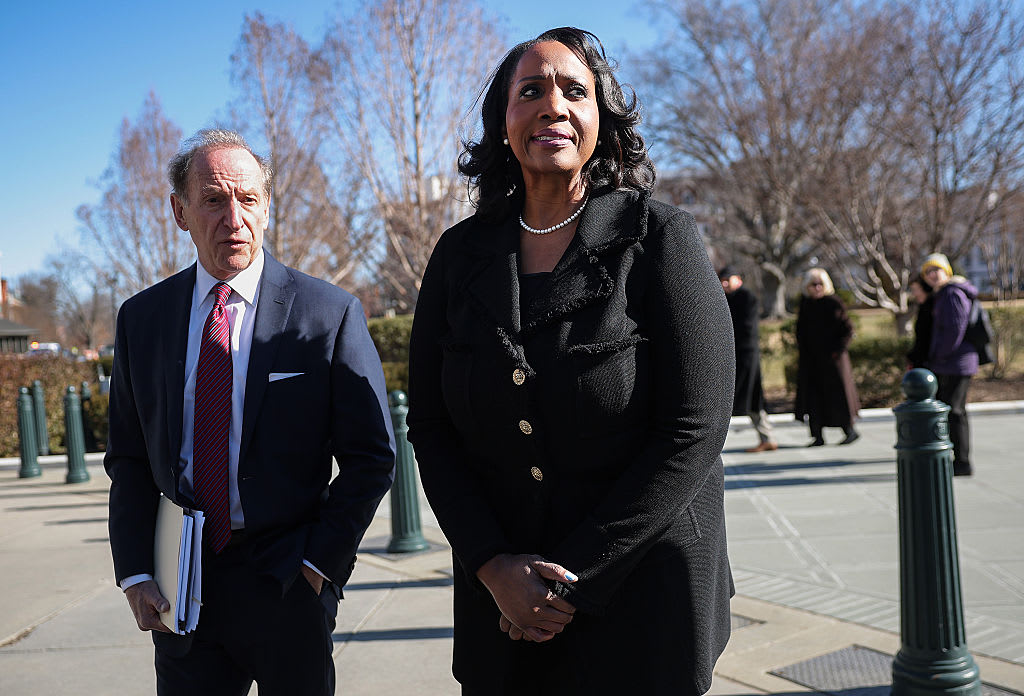Supreme Court skeptical of Trump plan to exclude undocumented immigrants from House redistricting count
Several Supreme Court justices on Monday questioned the legality of a last-ditch attempt by the outgoing Trump administration to exclude undocumented immigrants from the federal count used to award states seats in Congress and the Electoral College.
The conservative-leaning high court heard more than 80 minutes of oral arguments on the legal challenges against President Trump's effort to remove immigrants living in the U.S. without authorization from the decennial census count that dictates redistricting for the House of Representatives.
"A lot of the historical evidence and longstanding practice really cuts against your position," Justice Amy Coney Barrett, the newest addition to the bench, told the government attorney arguing the administration's case.
The U.S. government has always counted most of the country's residents, including non-citizens without legal status, for the purposes of allocating congressional seats. The 14th Amendment requires House seats to be awarded after the government counts "the whole number of persons in each State." The constitutionally mandated process occurs every 10 years following the census.
In July, arguing that "persons" was not strictly defined in the 14th Amendment, Mr. Trump said that it would be U.S. policy to exclude immigrants who lack "lawful immigration status" from calculations that determine how many House districts each state should have. His presidential directive instructed Commerce Secretary Wilbur Ross, who administers the Census Bureau, to provide him information following the 2020 Census that would allow him to do this.
Justice Stephen Breyer, a liberal who was appointed by Democratic President Bill Clinton, on Monday called the legal argument that undocumented immigrants should be counted for congressional apportionment "fairly strong."
"They are persons, aren't they?" Breyer asked acting solicitor general Jeff Wall, the lawyer representing the Trump administration in the suit, known as Trump v. New York.
Barrett, who is Mr. Trump's third appointment to the high court, reminded Wall of the unprecedented nature of the change sought by the administration, and posed the example of an undocumented immigrant who has lived in the U.S. for 20 years. "Why would … such a person not have a settled residency here?" she asked Wall.
Wall responded by saying that the U.S. has previously excluded foreign diplomats living in the country on a long-term basis from the apportionment count. "I'm not disputing at all that illegal aliens form ties to the community in the sense you are talking about, but they're not the sort of ties that are sufficient to qualify you within the apportionment base," he said.
Justice Sonia Sotomayor, appointed by President Barack Obama in 2009, said that immigrants detained by U.S. Immigration and Customs Enforcement (ICE) — whom the Trump administration has said would likely be excluded from the apportionment count under its proposal — could be eligible to stay in the country through asylum or other forms of immigration relief.
"I'm not sure how you can identify any class of immigrant that isn't living here in its traditional sense," Sotomayor told Wall. "This is where they are."
Members of the high court's conservative majority and liberal wing pressed Wall on the practical feasibility of the Trump administration excluding the nation's estimated 11 million undocumented immigrants from the redistricting count. The Commerce Department has a December 31 deadline to provide the president a tabulation of each state's population. The president is then required by federal law to submit a statement to Congress that would be used to redraw House districts.
Justice Samuel Alito, nominated to the bench by Republican President George W. Bush, called it a "monumental task."
Under questioning by Alito, Wall conceded that it was "very unlikely" that the Census Bureau would be able to identify and remove all unauthorized immigrants from the apportionment calculations.
Three federal courts have already ruled against Mr. Trump's planned changes to the census. In September, a three-member panel of federal judges in New York said the proposal violates federal laws that govern the redrawing of congressional seats and the census count, though they did not weigh in on its constitutionality.
Last week, however, another panel of federal judges in Washington, D.C. dismissed a fourth challenge against Mr. Trump's effort, saying the case was not yet "ripe for review" given the uncertainty surrounding which undocumented immigrants would be removed from the redistricting count.
Several conservative justices, including Justice Brett Kavanaugh, Mr. Trump's second appointment to the Supreme Court, on Monday weighed the possibility of the high court taking a similar approach and ruling after the administration decided which immigrants to exclude.
"The key point, I think, is that [Mr. Trump's] memorandum imposes no obligations on the plaintiffs to do anything at this point, unlike for example, a typical agency regulation," Kavanaugh said. "We call that a lack of ripeness."
If Mr. Trump's plan is enacted, California, Texas and Florida, states with large immigrant communities, could end up with one fewer House district than they would have been given under the current calculations, according to an analysis by the non-partisan Pew Research Center. Conversely, some states like Alabama and Ohio with less undocumented residents would gain a congressional seat that they would've otherwise not secured.
The Justice Department has argued that the impact of Mr. Trump's proposal on certain states potentially losing or gaining House seats is unclear, since he has yet to determine which classes of immigrants to exclude from the apportionment figures. The number of ICE detainees, the population Mr. Trump is most likely to exclude, stands at 16,075, according to government figures.
However, Justice Elena Kagan, an appointee of Mr. Obama, noted that the government also has records on hundreds of thousands of immigrants with final deportation orders or in removal proceedings, and of more than 640,000 recipients of the Obama-era Deferred Action for Childhood Arrivals program. While DACA offers works permits and protection from deportation, it does not legalize the status of its recipients, who remain undocumented.
Chief Justice John Roberts, a Republican appointee, said in his opening questioning that if the court did not intervene now before the commerce department transmits state population information to the president, "I don't know when the court would be able to intervene."
Wall said that lawsuits could be brought after Mr. Trump determines who will be excluded from the redistricting numbers and sends his report to the House of Representatives.
"Isn't that going to be like having to unscramble the eggs?" Roberts asked.




